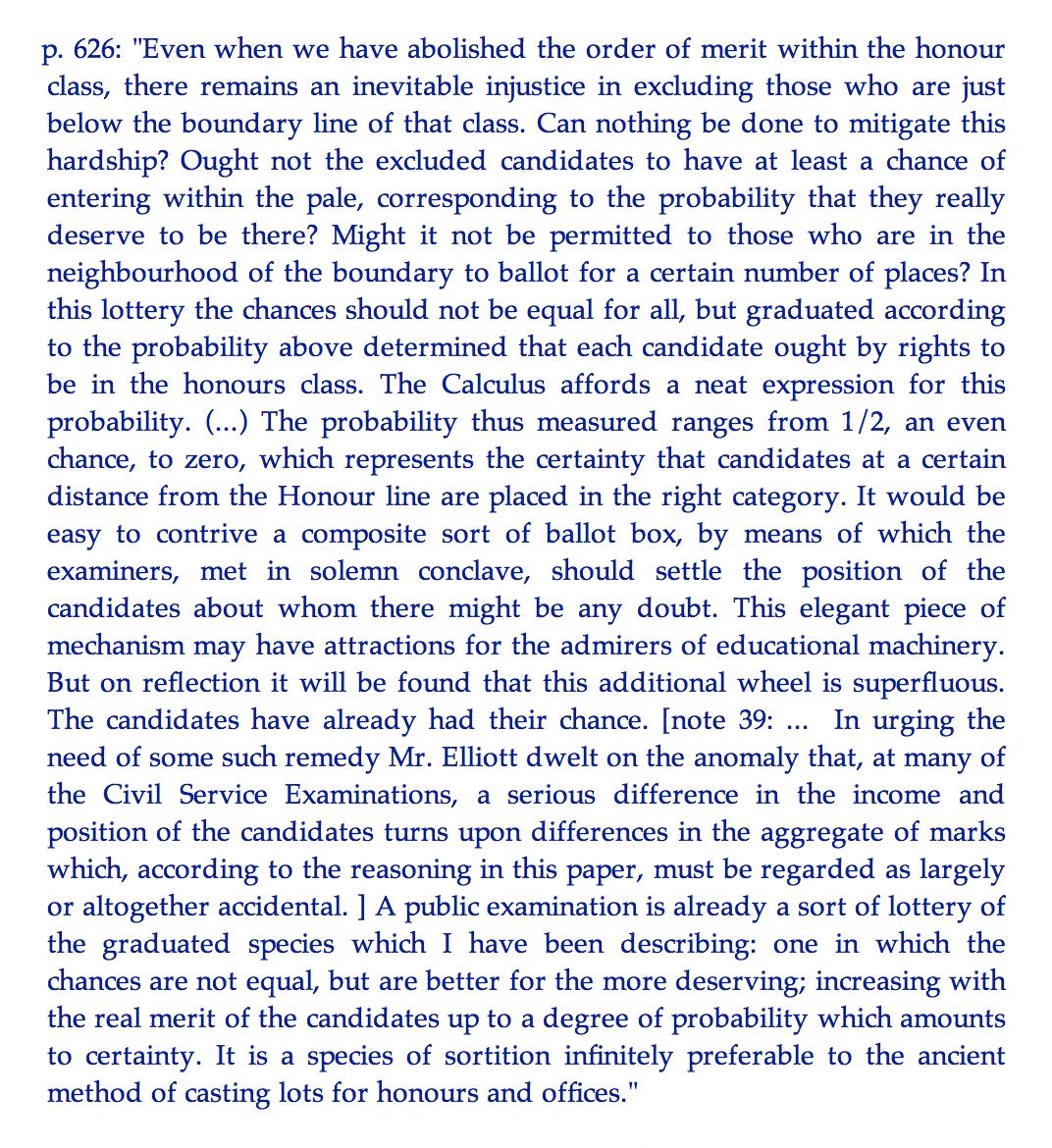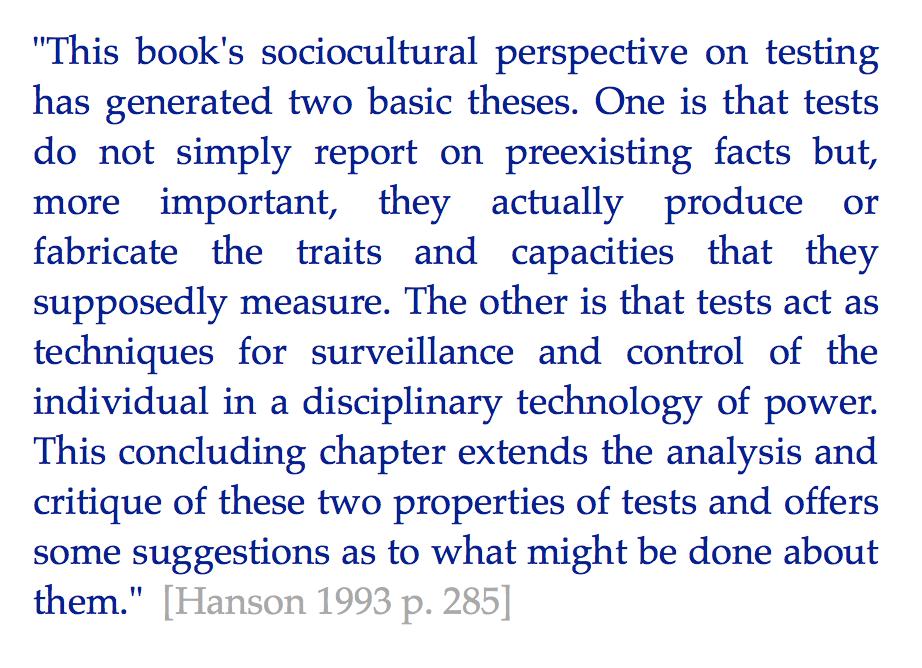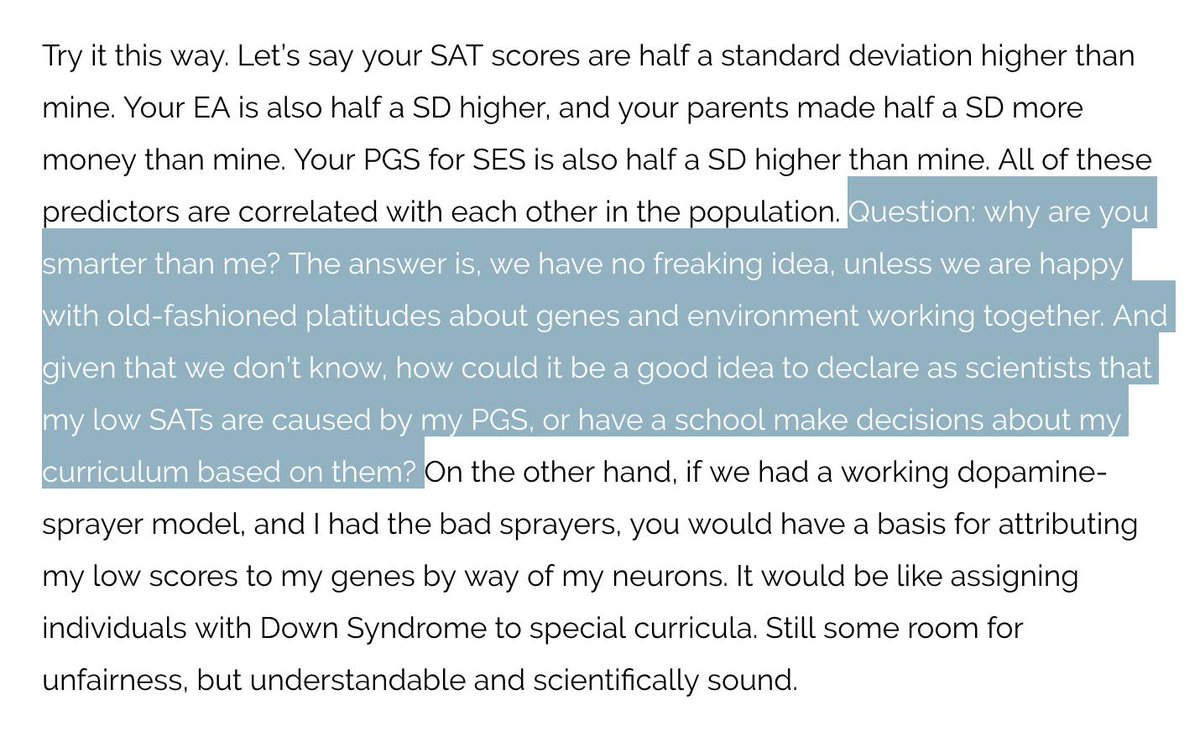

Nobody has a right to be admitted to the Civil Service: an examination is fair.
Children’s rights on a quality education have been agreed upon in intern. treaties.
[p. viii] “The power of genetic research comes from its ability to detect the effect of these inherited DNA differences on psychological traits without knowing anything about the intervening processes.” This is extremely problematic:
(2) Talk about differences without considering absolute levels is misleading. (#contingent on societal institutions: NHS, schools).
geneticshumanagency.org/gha/behavior-c…
[I once asked Denny Borsboom how a DIFFERENCE can be a cause. Surprise!]







